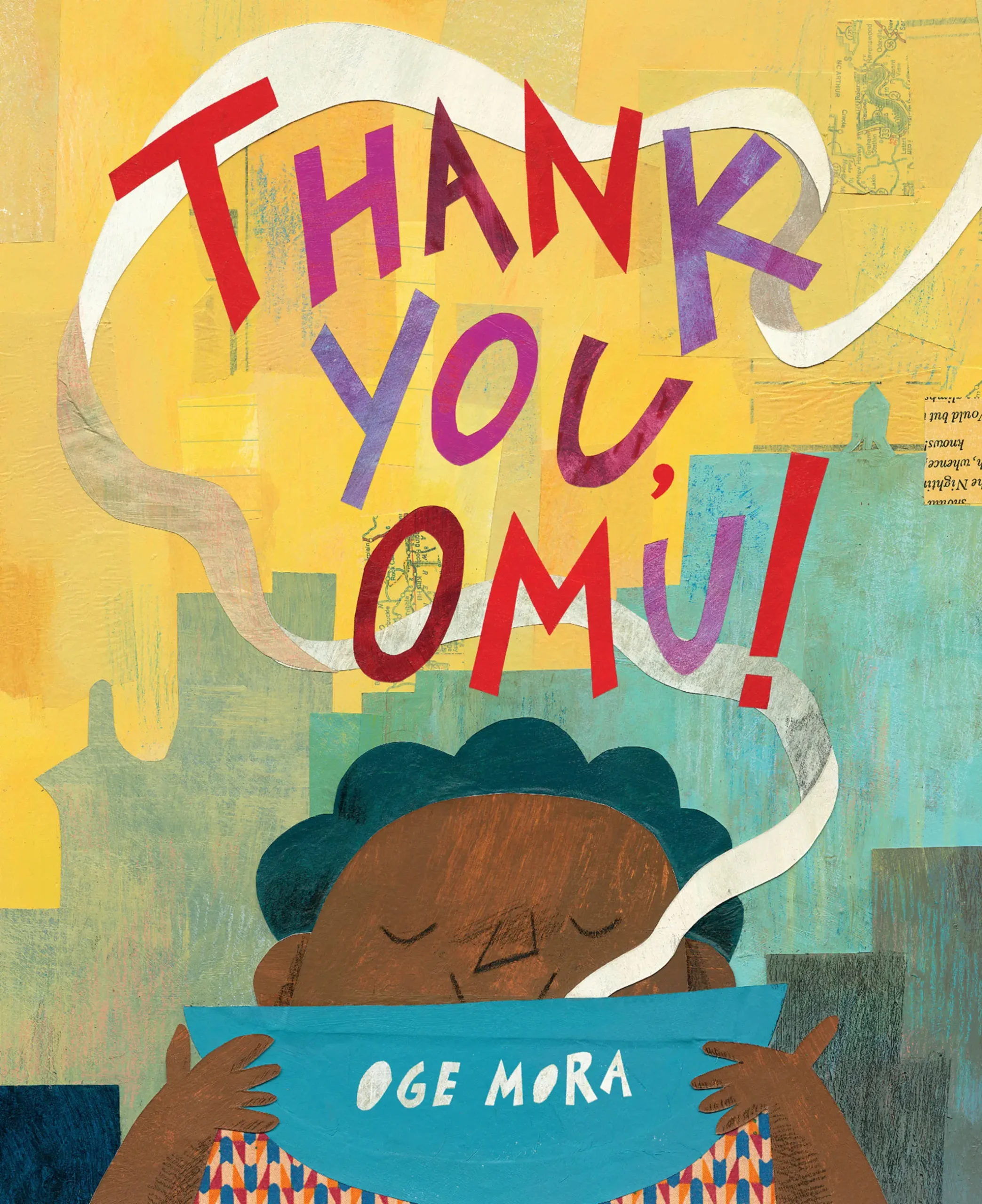
Art Form: Theatre
Supplies Needed
Thank You, Omu!
Paper and pencil
Vocabulary
Playwriting - The art of crafting a dramatized story to
be performed by actors; the process of writing a play
Scene - A part of a play or story that happens in one
place for a continuous stretch of time
Dialogue - The lines and speeches spoken by the
characters in a story or play
Stage directions - Instructions in a script or play that
tell the actors what to do or how to act
Script - The written version of a play, scene, or
movie
Instructions
1. After reading the book, look at the page where everyone brings food to Omu.
2. Imagine the scene where everyone gets together, realizes they had eaten
all of her stew, and decides to bring her food. Choose several of the
characters from the illustrations to include in your scene.
3. Brainstorm what the characters might have said to one another when they realized they had eaten all of Omu’s rood and how they came to the resolution to work together to bring her food.
4. Write a script showing the dialogue and stage directions.
5. As you write, use playwriting format, putting the name of the character who speaks before each line, skipping lines between the different characters’ speeches, and enclosing the stage directions in parentheses.
6. Read the scene aloud, by yourself or with others, using different voices for the different characters.
Extensions
Find simple costume pieces or props around your home for each character, and use them to act out the scene.
Convert your scene into a short comic strip, like part of a graphic novel.

About
The REimagining and Accelerating Literacy through Arts Integration (REALAI) grant supports the literacy achievement of 3,200 students and 170 teachers, media specialists, and literacy coaches across six schools in Georgia and South Carolina.
In addition to professional learning for educators, this project contributes significantly to school library collections through the purchase of developmentally appropriate and culturally relevant books.
This grant also includes parent events to provide families with access to books and other content about how to support their child’s reading development.
